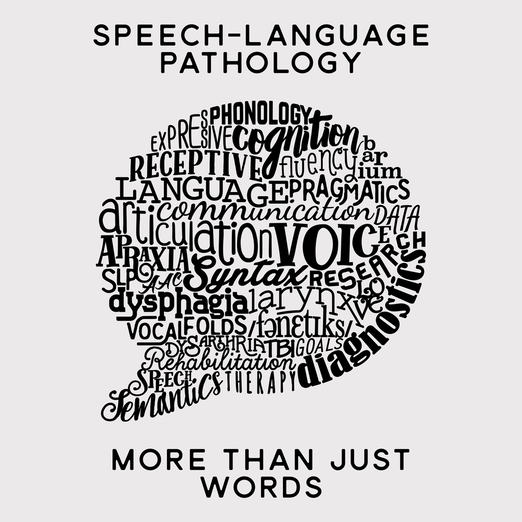
When I tell people I’m studying speech-language pathology, I usually get one of these responses:
1. What is that exactly?
2. So you fix people’s lisps and stuff?
3. So you write speeches?
4. Oh I know someone who went to speech pathologist/I went to one/ I know someone who studies that/works as that.
4. Oh wow cool… *changes subject*
So for all those people in the world who need some clarification on what SLP is, or are interested in the field, this article is for you!
There is so much more to the field of speech-language pathology than what is perceived. So many different areas that change people’s lives. So let’s talk about the people SLPs can serve.
The majority of people that come to an SLP have a disorder of some sort whether its one that they had from birth (congenital), or one that they developed later in life (acquired).
There are two main types of disorders: speech disorders and language disorders. Differentiating speech and language is extremely important in this field. As is saying speech-language pathology instead of just speech pathology, which I used to be guilty of doing until my professor taught us not to (Thank you, Dr. Jones!). This is because we are not just treating people’s speech, aka the sounds they produce and their voice quality, but their language as well, which encompasses people’s understanding of language that others are saying (receptive) and the language that they are producing (expressive).
Beyond that, there are social communication disorders (such as autism), swallowing disorders (scientifically known as dysphagia) and cognitive-communication disorders that affect the brain as a result of traumatic brain injuries or strokes. When people have these disorders, they often have difficulty planning, problem-solving, paying attention and remembering. Other populations that SLPs are qualified to work with are people who are deaf or hard of hearing, and those who need communication devices. There are also people who don’t have a speech or language disorder but are seeking to modify an accent, or become more effective communicators.
With all of these disorders in mind, the main places SLPs can work in are hospitals, schools, private practices, or in universities as professors and/or researchers, with many different areas within each. I may go into these areas in a different article if that is something of interest to readers.
I hope this article gave a little more insight into what speech-language pathology is, and the wide range of people and populations that we aim to serve. If you have any questions, send me an email below!

